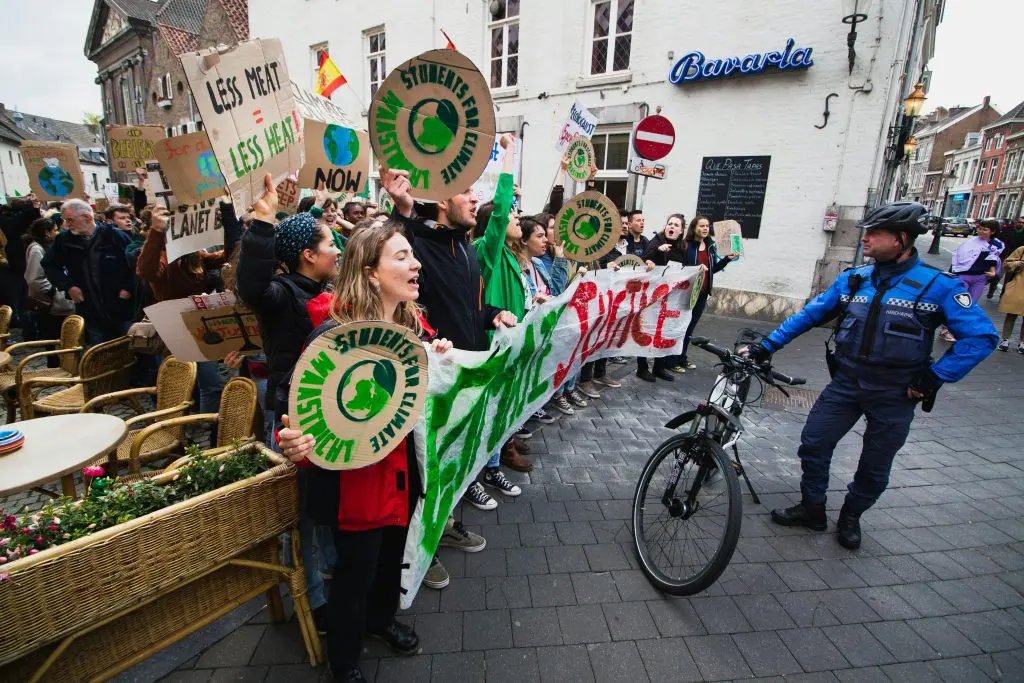
What the New Draft Climate Action Plan Means for Northern Ireland’s Sustainability Future The climate crisis is arguably one of the most pressing challenges of our time, and Northern Ireland is no exception. Recently, the Northern Ireland government unveiled its new Draft Climate Action Plan, a pivotal document setting the trajectory for the region’s sustainability […]
The climate crisis is arguably one of the most pressing challenges of our time, and Northern Ireland is no exception. Recently, the Northern Ireland government unveiled its new Draft Climate Action Plan, a pivotal document setting the trajectory for the region’s sustainability efforts. In this article, we will explore what this new plan entails, its potential impact on the environment, and how it aligns with Northern Ireland’s long-term sustainability goals.
The Draft Northern Ireland Climate Action Plan outlines a comprehensive strategy aimed at reducing greenhouse gas emissions across various sectors, including energy, transport, agriculture, and waste management. The plan is designed to meet the legally binding targets set by the Climate Change (Northern Ireland) Act 2019, aiming for net-zero emissions by 2050. By outlining a series of ambitious but achievable targets, the plan seeks to improve the resilience of Northern Ireland to the impacts of climate change.
The plan is led by the Departement of Agriculture, Environment and Rural Affairs (Daera).
Among the core objectives of the Draft Climate Action Plan are:
These objectives demonstrate how Northern Ireland plans to weave sustainability into the fabric of its economic and social policies.
The draft Northern Ireland Climate Action Plan currently suggests that the estimated percentage shares of greenhouse gas emissions by sector is thus:
| Sector | % of Total Emissions |
| Agriculture | 29.1% |
| Transport | 17.8% |
| Energy Production and Supply | 14.0% |
| Residential and Public Buildings | 13.4% |
| Business and Industrial Processes | 11.9% |
| LULUCF | 10.1% |
| Waste Management | 3.6% |
| Fisheries | 0.1% |
The impact the draft Northern Ireland Climate Action plan proposes lies in economic opportunities and environmental benefits.
The transition to a greener economy is not merely a challenge but a significant opportunity for Northern Ireland. The Draft Climate Action Plan lays the groundwork for several economic benefits, including:
The Draft Climate Action Plan aims to tackle environmental degradation, focusing on aspects crucial for Northern Ireland’s ecosystems:
A key aspect of the Draft Climate Action Plan is its focus on engaging local communities. Achieving the outlined goals is not solely the responsibility of the government; it requires the participation of businesses, individuals, and community organisations. Various channels, such as workshops and public consultations, have been initiated to raise awareness and encourage community involvement.
The action plan also aims to embed sustainable practices within communities. Initiatives such as community-owned renewable energy projects, local food initiatives, and tree planting campaigns foster a sense of community responsibility while directly contributing to sustainability goals.
The challenges facing the draft Northern Ireland Climate Action plan include balancing development and sustainability, and political and policy implications.
While the Draft Climate Action Plan lays a promising foundation for a sustainable future, challenges remain. Balancing economic development with environmental protection requires careful planning and collaborative approaches. Industries may face resistance to change, especially in sectors reliant on traditional practices. Therefore, providing support and incentives for these industries to transition is essential.
The draft Northern Ireland Climate Action Plan brings several challenges for rural communities, as highlighted by the accompanying Rural Needs Impact Assessment (RNIA). While the plan identifies opportunities—such as renewable energy projects and sustainable agriculture—it also acknowledges significant hurdles.
The RNIA emphasises that these challenges could be compounded by overlapping policies and calls for mitigation measures. The measures include local training, financial support, and workforce development to ensure rural areas are not left behind.
As climate action becomes increasingly urgent, political will and coherence among policy frameworks will be crucial. Ensuring that local government policies align with the objectives of the Draft Climate Action Plan will be vital for impactful implementation.
The new Draft Climate Action Plan represents a substantial commitment to addressing climate change in Northern Ireland. Its comprehensive approach not only aims to reduce emissions but also supports economic growth and community engagement. By taking these steps, Northern Ireland is positioning itself as a leader in sustainability and climate action.
As the plan moves from draft to implementation, it will be essential for all stakeholders—government, industry, and citizens—to collaborate in realising a sustainable and resilient Northern Ireland. The path is undoubtedly challenging, but the potential benefits far outweigh the risks, paving the way for a future that is both economically viable and environmentally sustainable. Now is the time for action, and the Draft Climate Action Plan provides a robust framework for making significant strides towards a greener tomorrow.
The Draft Northern Ireland Climate Action Plan is a government-led strategy outlining how the region will reduce greenhouse gas emissions and achieve net-zero by 2050. It targets key sectors like agriculture, energy, transport, and waste, with the goal of transitioning to a more sustainable, low-carbon economy.
Key goals include reducing carbon emissions by 33% by 2030, generating 80% of electricity from renewable sources, protecting biodiversity, improving waste management, promoting sustainable agriculture, and enhancing public transport infrastructure—all aligned with long-term climate resilience.
The plan is expected to boost green job creation, attract investment in renewable energy and sustainable technologies, and reduce long-term climate-related costs. Sectors like clean energy, retrofitting, and conservation are poised for economic growth under this new green strategy.
Challenges include balancing rural needs with sustainability targets, upgrading outdated infrastructure, supporting farmers and businesses in the transition, and aligning political policies across departments. Rural communities especially face energy access issues and may need additional support and training.
Community involvement is key to the plan’s success. Locals can participate in consultations, support local food and renewable energy projects, join tree-planting initiatives, and adopt eco-friendly habits. The plan encourages shared responsibility between citizens, businesses, and government bodies.